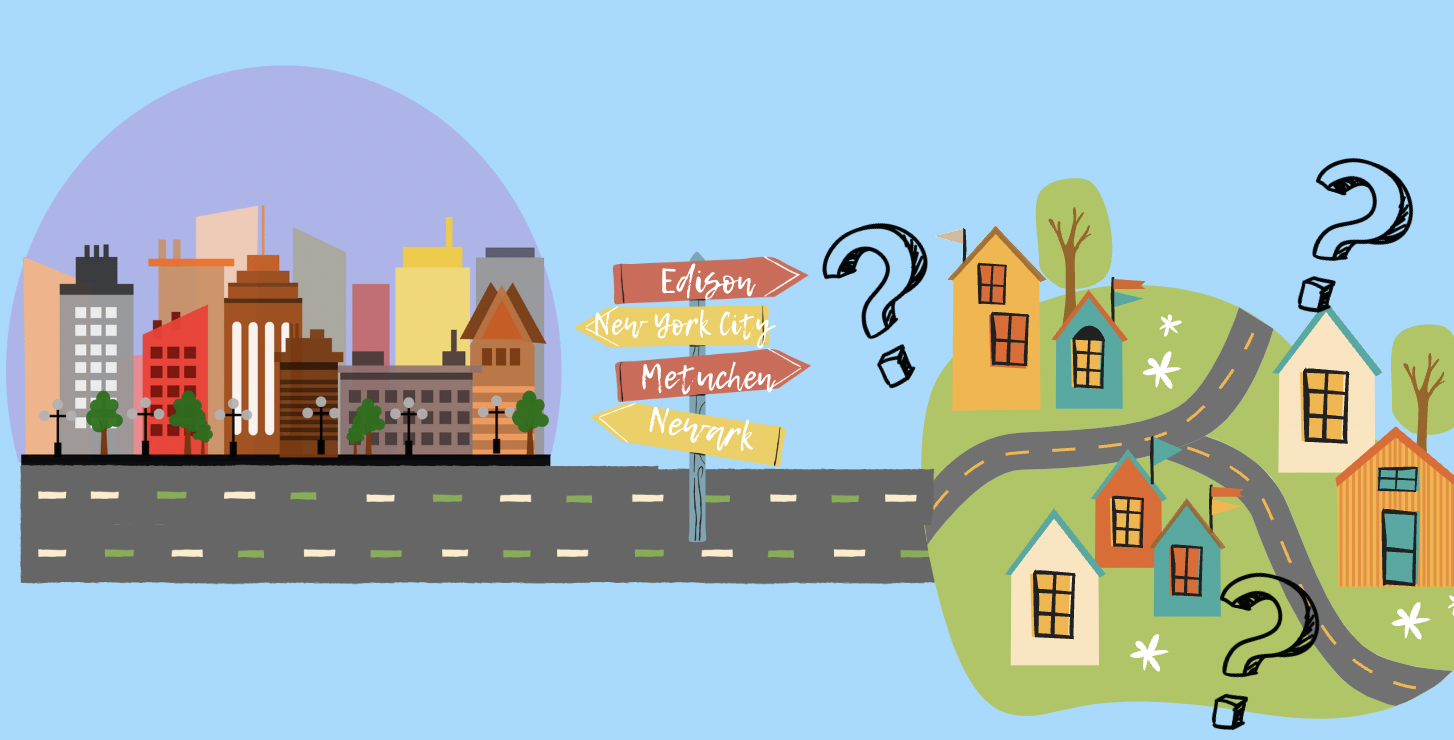What do you envision when you hear the words “low-income city”? Does it vary along the lines of run-down bodegas, rat-infected train terminals, and overcrowded roads? Cities such as New York City, Philadelphia, and various others have long been negatively impacted by various media depictions such as Freedom Writers, The Outsiders, and Training Day. And compared to depictions of suburbia which include picturesque single-family housing districts and vast parklands, these areas can seem undeveloped. This is especially true for former city dwellers who grew up in such regions, and see the suburbs as some sort of haven. But what else besides clean cut grass and two-story houses do the suburbs such as Edison have to offer? And if the cities are so bad, how come many newcomers have such a hard time adjusting to what society deems “the vastly superior suburbs”?
For former city dwellers in particular, the allure of the white noise within the suburbs relative to the deafening chaos of a city offers a sense of tranquility. And many urbanites prefer the freshly mowed patches of Edison rather than the densely packed concrete jungle.
“In Newark, I was so used to it being loud and noises coming from the road and people outside. Meanwhile, here it’s calm and quiet, so much so, I wake up and think everyone died,” said Dianalie Cruz ‘27.
“New York has everything, but I like Edison, since it’s calmer,” Michael Clarke ‘27 agreed.
Contrary to the media’s popular belief that the suburbs, with their large single-family housing units, do not include places for children to hang out, there are some third places here in Edison, though it’s important to know their cost, especially in this economy, might raise concerns for those necessarily conscious of their wallets.
“The various malls, fast food restaurants, corner stores, make it very easy to hang out with my friends during the weekends, which is very nice since I’m not used to that,” said Aijah Somerselle ‘26.
With third places, people can make friends on their own time without the constraints of whether or not one has a class with someone they like or want to be friends with. And with how fast-paced school can be, it’s no wonder that many former urbanites choose to spend a majority of their socializing hours in such places with people they enjoy.
“Half of my friends I didn’t even meet in school, I met them outside of school,” said Saijon Crenshaw ‘27.
However, despite Edison offering places for newcomers to meet their new neighbors, many feel that task is easier said than done. The challenge? Cliques, or groups of individuals who share similar characteristics, challenge any transition to a new place.
“In Bangalore, everyone wants to talk to new people and even keeps the doors to their house open to invite new people inside their house,” said Daksh Shah ‘26, “In Edison, people have formed their social group with those they’ve known since kindergarten, thus making it hard for new people to make friends here.”
By forming relationships that protect shared experiences and interests, cliques quickly find themselves becoming increasingly opposed towards newcomers seeking friends to confide in despite any differences between them. Instead of being able to have a diverse set of friends that can empathize with one another despite coming from different backgrounds and being accustomed to different advantages or disadvantages, former urbanites are limited to a strict set of people—thus setting the false precedent for a generally intimidating environment.
“In Edison, people tend not to branch out of their friend groups, which remain closed off most of the time,” Cruz agreed. “Meanwhile in Newark everyone is more out and open and very social so they talk with anyone at any time.”
Apart from changes in opportunities to socialize in Edison, there are also changes in opportunities for education. Increased Edison public school funding, stemming from higher property taxes, have a variety of uses ranging from purchasing more up-to-date school supplies and technology, increased extracurricular activities, to renovating the building of Edison High.
“Here in Edison, there are a lot more options to choose and learn from,” said Cruz.
In contrast, lower-income cities tend to lack vital public school funds, resulting in a dependency towards outdated equipment and decreased extracurricular activities.
“In Newark they don’t have as much money to be able to afford the good classes that can actually help you a lot in the future,” Cruz further explained.
Overall, depending on what one deems essential to the suburbs, former city dwellers sense a change in their move to Edison, New Jersey. However, for any newcomer moving anywhere, adjusting to a new environment can entail complications such as a lack of community at first. But with time, for the typical urbanite moving to Edison, their experiences here may change for the better depending on their expectations and the experience they’re truly searching for.



